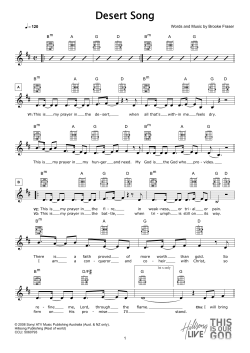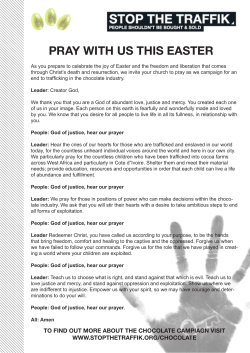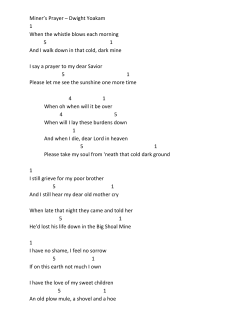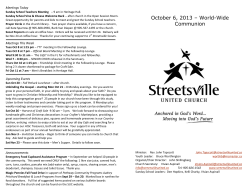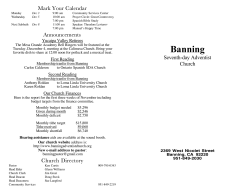
Name ______________________ Tutor Group ____________
Name ______________________ Date (circle) September/October/January Tutor Group ____________ Teacher ____________ 2010 - 2011 How to be Happy Handbook RME Year 2 (NOCN General Religious Education level 2) LESSON 1 : DOES LIFE HAVE A MEANING? Introduction In your second year at St. Dominic’s you will continue to follow a course in Religious & Moral Education. This qualification is accredited by the National Open College Network and each student that successfully passes the course will receive an NOCN certificate. This is a nationally recognised qualification which demonstrates that you have successfully completed a course in Religious & Moral Education. To pass the course you need to attend regularly, participate in discussion and group work and complete the written elements of the Course Handbooks. There are three Handbooks covering the topics How to be Happy, Searching for God and The Moral Maze. Lesson Objectives: • • • To get to know each other and complete the RME Individual Learning Plan. To consider the question ‘What is the meaning of my life?’ To explore the difference between spiritual and material goals in life. Activity 1: Icebreaker Activity 2: RME ILP The learning outcomes in the How to be Happy Course are to: • • • • Reflect on questions of life and death. Understand the relationship between religious belief, personal faith and lived experience. Use theological thinking skills to be able to respond to their own personal experience. Understand that faith is crucial to personal well being. Complete part A of the RME Individual Learning Plan which you teacher will give you. Activity 3: ‘Does Anybody Know What We Are Living For?’ 1. List five goals in your life that are most important to you at the moment. • • • • • 2. How do you think these will change over your life? 2 AMH/PH/RME/How to be Happy Handbook 3. Discuss your findings in the group. Is the ‘meaning of life’ different in different religious traditions (e.g., Christianity, Hinduism, Islam?) 4. Reflection: From the list on the board identify the three most important goals in your life: • • • Final Prayer: Dear God, help us to love you, and each other, more and more. Help us to have spiritual goals in life and not be people addicted to money and material possessions. Help us to be happy and at peace with ourselves, bless the relationships we have with each other, and make us all more aware of your great love for us. 3 AMH/PH/RME/How to be Happy Handbook LESSON 2 : WHAT MAKES US HAPPY? Lesson Objectives: • • To decide what are the most important things which make us happy. To explore how spiritual values and faith are essential to personal well being. Starter Activity: Watch the Laughing Baby clip on YouTube (W/RME/How to be Happy/Laughing Baby). If only happiness was this simple as we get older! Activity 1: Diamond 9 What are the most important things which make us happy? Your teacher will give you the Diamond 9 cards which you complete in groups of three. Activity 2: Combine groups of three into groups of 6. Look at each other’s arrangements and reach a consensus amongst the six. Activity 3: Discuss Your teacher will give you the answers. Do you agree with the findings? Activity 4: Reflective Log In the box below write down your personal top three factors that make you happy: • • • 4 AMH/PH/RME/How to be Happy Handbook LESSON 3 : WHO NEEDS GOD? Lesson Objectives: • • To examine whether you can be happy without spirituality To understand the importance of God in our lives if we are to be truly content Starter Activity: Recap last lesson – What Makes us Happy? Activity 1: Who Needs God? Religious faith was very high on the list of happiness factors. But, can you be happy without faith? Before you read the article write below the meaning of two keywords. ATHEIST: ________________________________________________________________________ THEIST: ________________________________________________________________________ As you read the article ‘The Meaning of Life’ by Adrian Barnett, put a √ or a X next to stuff you agree/disagree with. The Meaning of Life! One of the major misconceptions about atheists is that we have little or no respect for life - human or otherwise. Because we think that all life is some accidental freak of nature there is no meaning or purpose to it all, and it is all pretty worthless. We cannot possibly gain the same enjoyment and fulfilment from living that believers do. We care nothing for the suffering of others, as they're all just worm food in the end. What fresh lunacy is this? (to quote Harry Hill.) Yes, life on this planet is a lucky accident, probably similar to countless other emergences of life on other planets. No, there is no particular purpose or meaning behind it all - why should there be? What right do we have to consider ourselves special? However, as an atheist, I consider all (well, most) life to be sacred (if I can use such a word). Atheists know that we only get one chance at life. This is it. This is all you get. No reincarnation, no heaven or hell, no second chances. You only get one go, and to mess it up or waste it is the most terrible thing. Make the most of your brief span of awareness. Educate yourself so that you can see the wonders of the universe for what they are, without the fog of religious belief. Swim in the Indian Ocean. Watch the sunset at Uluru (Ayer's Rock). Tickle a baby. Climb a tree. Learn to unicycle. Massage your partner. Take up pottery. Gain pleasure from making other peoples' lives better. Some people live in appalling conditions, earning in a week what you might earn in one hour (if that). Support an orphanage. Some theists seem to have this bizarre notion that atheists are sad, dreary, selfish people who only ever consider themselves, have no concern for anyone else and mope around all day wondering how they can get to Heaven without having to believe in Jesus and be nice to people. (Funny just how wrong some people can be, isn't it?) I am often asked "Why bother? If life is a meaningless accident, with no ultimate goal or purpose, why not just kill yourself now? Why not even go on a killing spree and end the worthless lives of everybody else? What stops you ending it all?" To which I would reply - "Have you ever built a snowman?" After all, snowmen are ephemeral objects, soon to be melted in the sun. A snowman has no ultimate purpose or goal, and in a few weeks there will be no trace of it's ever existing. We build snowmen because all of us, theists and atheists, live here and now. In the context of our own brief mortal lives, we are able to enjoy this life and gain pleasure from ultimately pointless acts. It is fun to build a snowman, or climb a mountain, or watch the sunset, or go for a long cycle ride in the countryside. The purpose of these things is not "out there" somewhere, waiting to be achieved - the meaning is in what it means to ourselves. I am not overly 5 AMH/PH/RME/How to be Happy Handbook concerned about some future fifty billion years from now, but I am concerned about the future of humanity here, now and for the generations that follow. That is the context of a mortal life, and that is why I "bother" to live and damn well have fun while I'm doing it. There is no meaning to life itself. There is no purpose to the universe. You can, however, give life meaning through your actions. Make the world a better place for yourself, your contemporaries and your descendents. Atheists can, and often do, lead a full and enjoyable life. We know that this is all we get, and all that everybody else gets, so we do the best that we can for ourselves and others. It's no good praying for people dying in a third-world country - there's no God to help them, only people. If people don't do it, nobody else will. I am sickened whenever there is a major disaster in the world, and some politician or church leader says that the victims desperately need our prayers. No they don't. They need someone to go and dig them out of the rubble, comfort the bereaved, find out why the plane crashed, bring them food and medicine. Prayer is not going to do that - people are. There is an orphanage in Kenya, called the Diani Childrens Village. The kids there have no family at all, and live in, well... a hovel. Do they need prayers and Bibles, or do they need love, money, food, clothes and education? As an atheist, I consider all life to be sacred. A life and a mind are terrible things to waste. Make the most of them while you can, and help others do the same. © Adrian Barnett 1997, last updated 6/6/2000 Is that such a Bad Thing? Discussion Questions: 1. Has this article changed any of your views about atheists? 2. What things did you agree/disagree with in the article? 3. Can you pick out any phrases or sentences that are clearly very spiritual in this article, e.g., things that demonstrate that the author might have a profound spirituality? 4. Can you think of anything that the author might be missing out on as a result of his atheism? 5. What do you think about his views on prayer? 6. Does Adrian Barnett believe in God? [this is not a trick question] 7. Someone said “the person who wrote this article might well be further ahead in the queue for heaven than many who go to church every Sunday or worship regularly in the mosque or temple!” Do you agree? Final Prayer: Lord God, help us in those times when we lose faith or doubt your existence. Help us never to be afraid to ask questions. Give us the strength to believe in your promise to be with us always, even to the end of time, and may we place all our trust in you. Amen. 6 AMH/PH/RME/How to be Happy Handbook LESSON 4 : THE HAPPINESS MANIFESTO Lesson Objectives: • • • To investigate further the latest research findings indicating what makes people happy To see how this might impact on our own lives To introduce to students The Happiness Manifesto Activity 1: The Happiness Questionnaire 1. Do you enjoy gardening/planting things/looking after plants? If not now, do you think you will in the future? Yes/No 2. List five blessings (things you are grateful for). You must list five in less than a minute. • • • • • 3. Do you have a conversation with someone close to you each week that lasts an hour or longer? Yes/No 4. How often do you telephone friends? 5. Have you given yourself a treat in the past week? What did you do? 6. How often do you have a really good laugh? At least once a day/3 or 4 times a week/once a week or less 7. How much fairly vigorous exercise have you taken in the last week? 8. In the last week have you started up a conversation (however briefly) with someone you don’t know? Yes/No 9. How much TV do you watch each day? 1½ hours or less/1½ - 3 hours/more than 3 hours 7 AMH/PH/RME/How to be Happy Handbook 10. Have you performed an act of kindness for someone either today or yesterday? What was it? 11. How often do you pray? Every day/2 or 3 times a week/less than 2 or 3 times a week Activity 2 : Happiness Resolutions In the space below, write down three things you might do in the future to increase your happiness: • • • Closing Prayer: Lord, help me to count the many blessings you have given me, help me to reach out to friends and strangers, help me to use wisely the time I have each day, give me a kind heart and a ready smile. 8 AMH/PH/RME/How to be Happy Handbook LESSON 5 : POSITIVE THINKING Lesson Objectives: • • To understand that the way we look at things determines our beliefs, feelings and behaviour To practice the skills of positive thinking and re-framing situations so that we can think and feel differently Activity 1: The Farmer’s Son There is an old, old story about a farmer in China, One year the weather was very good and his crops grew strong and high, and all his neighbours told him how lucky he was to have such a fine crop and he replied, ‘Maybe’. Then the day before he was going to start the harvest a herd of wild horses came running off the plains and trampled all his crops flat. His neighbours came around and said how unlucky he was to lose his fine crop. The framer replied, ‘Maybe’. The next day the farmer’s son went out with a length of rope and caught a wild stallion and three mares, and the neighbours came round to admire the horses and told the farmer how lucky he was. The farmer said, ‘Maybe’. In the morning the farmer’s son started to break in the horses and no sooner had he mounted the stallion than it threw him, and as he fell on the ground he broke his leg. The neighbours carried him indoors and commiserated with the farmer, saying how unlucky he was that his only son was so badly injured. The farmer said, ‘Maybe’. The next day the Emperor’s army came to the village on the way to fight a great battle and all the able-bodied young men were press-ganged into the army. But the farmer’s son was not taken because if his broken leg. All his neighbours told the farmer how lucky he was that his son had been saved from the army and the farmer said, ‘Maybe’. Discussion: What’s the moral of the story? Activity 2: The Power of Positive Thinking Two examples of positive thinking: ‘There’s no such thing as bad weather – only the wrong clothes’, Billy Connolly. ‘We’re not retreating, we’re just advancing in another direction’, General George Patton. The point is that our happiness is primarily affected by our perspective on life. The way we view situations and events determines how we feel and behave. Some people always manage to look at things in a positive way. In much the same way as a photographer tells you what is important in a picture by what he decides to include in the frame and what is left out, the meanings we give to the events in our lives are determined by the parts of our experience we choose to make important. Our interpretation of any situation depends on what we include or exclude from our frame of perception. The fact is: everything is relative. When you think one situation is bad, that is because you are comparing it to something you think is better. Listen to the Dear Mum & Dad letter. How does the daughter re-frame the situation? Activity 3: The Frame Game Practice the power of positive thinking by reframing the following situations. Note that some people always manage to look at things in a positive way. They have an ability to frame any situation in a way that leaves them feeling empowered and strong. They can take a seemingly negative situation and reframe it to find the positive. For these people, the glass is always half full, no matter how empty it may look to the rest of us. The art of reframing the world with a positive perspective is not about ignoring problems, but about having sufficient flexibility to make your point of view work for you instead of against you. Have a go at reframing the following negative situations – there are no right or wrong answers, just different ways of looking at a situation. 9 AMH/PH/RME/How to be Happy Handbook NEGATIVE POSITIVE 1. I failed by exam because I’m useless at the subject 2. My girlfriend/boyfriend dumped me because I’m not a very nice person 3. I’m quite shy so I’m not going to the party 4. I can’t play football (or swim) very well 5. I don’t get on very well with my parents 6. X doesn’t like me 7. ‘Subject’ is too difficult 8. I’m scared to do that, so I won’t do it 9. I hate doing coursework 10. I don’t get anything out of going to church/mosque/temple. It’s so boring 11. I’m gutted I didn’t get the dream job I wanted 12. I’m nervous 13. My life is full of problems 14. I’m gutted - my team has just lost in the Cup Final I failed my exam because I didn’t work hard enough. Next time I’ll start revising earlier and I’ll pass 10 AMH/PH/RME/How to be Happy Handbook LESSON 6 : GOAL SETTING Lesson Objectives: • • • To decide what the key core values are in my life To consider if my life has a key purpose and decide what is my Big Dream To understand what it is that God might want from me Activity 1: The World is Coming to an End If the world was going to end one week from today, I would ... _________________________________ _____________________________________________________________________________________ Activity 2: What Are Your Core Values? To find out your Core Values, answer the following questions: 1. Jump ahead to the end of your life. What are the three most important lessons you have learned and why are they so important? • • • 2. Think of someone you deeply respect. Describe three qualities in this person that you most admire. • • • 3. Who are you at your best?__________________________________________________________ 4. Write a sentence inscription you would like to see on your tombstone that would capture who you really were in your life? ________________________________________________________________________________ Make a list of the most important things that emerged from the questions –then choose your top 5 values – the things on your list you absolutely cannot imagine going without – the most important things in your world List Top 5 Values • • • • • If you’re having problems completing the list consider the following questions: What do you love to do so much that you’d pay to do it? What do you feel really passionate about? What would you choose to do if you had unlimited resources? Who are the people or characters from history you most admire, and why? What character traits do you want to develop? What do you want to give back to the world? 11 AMH/PH/RME/How to be Happy Handbook Now write your Big Dream: If I could be, do and have anything in the world, I would … End with the YouTube clip Suggestions for a Happier Life (W/RME/How to be Happy/Suggestions for a Happier Life). Closing prayer: Lord God, help me to live my life looking to the stars, rather than to the ground. Help me to dream great dreams and plan to achieve wonderful goals. Show me the values I need to be a person of love, help me through the in-dwelling of your Spirit, to be the person I was created to be. 12 AMH/PH/RME/How to be Happy Handbook LESSON 7 : LIVING IN THE PRESENT Lesson Objectives: • • • To explore how ‘false consciousness’ often holds us back from living life to the full To examine the extent to which belief in God can increase our levels of happiness To discuss different faith tradition approaches to ‘living in the present’ Activity 1: Discuss what you think ‘false consciousness’ is. Watch ‘Yes Man’ clip (W/RME/How to be Happy) and ‘Plan a Successful Future’ (W/RME/How to be Happy). Answer in small groups the following questions: 1. 2. 3. 4. 5. What are the two different ‘life approaches’ that these clips suggest? Which is most important? Which brings most happiness? Why? People who are obsessed by earning/making money often see themselves as successful. How could this be seen as a ‘false consciousness’? How important is it to live ‘in the moment’ – is it always possible? In what ways does your own faith tradition allow you to ‘live in the moment’/plan for the future? Activity 2: Are You A Spiritual Person? Go down the flow chart, writing in your answers in the appropriate boxes. Discuss your answers with your neighbour once you have finished. DO YOU BELIEVE IN GOD? YES What is the single most important reason for your belief? Yes/Why? What is the single most important reason for your belief or uncertainty? Would you say that your belief was the most important or a very important part of your life? Have you totally rejected the idea of God and spirituality in your life? NO Yes – state why NO What is the most important factor preventing you from religious commitment or belief? Explain what reason you would give for your ‘No’ answer No, why not? NO/NOT SURE Do you feel that your belief could change and that God and religion might become much more important? Closing Prayer: A Buddhist Blessing YES/PERHAPS May you be safe and protected May you be happy and peaceful May you be healthy and strong May you carry your life with ease and grace How do you think this might happen? No, why not? Would you like to have a stronger faith/closer relationship with God? 13 YES/PERHAPS AMH/PH/RME/How to be Happy Handbook LESSON 8 : HOW TO CONTROL ANGER Starter Activity: How Angry Are You – Take the Test 1. How often do you get angry? 2. When was the last time you completely ‘lost it’? 3. Do you ever say things when you are angry that you later deeply regret? always/sometimes/never 4. Who gets you most angry? 5. As you get older is your anger getting … 6. On a scale of 1 – 10 (1 low, 10 high) how would you rate your level of anger? 7. What is your best method of reducing anger? every day/one or twice a week/very rarely/never in the last week/last six months/never family/friends/others better/same/worse Activity 1: Jesus Gets Angry Read the extract below from Mark’s Gospel: 11, 15-18 They reached Jerusalem and Jesus went into the Temple and began to drive out the people who were buying and selling there. He threw down the tables of the money changers, and the chairs of those who sold doves. He would not let anyone carry anything through the temple. And he taught the people, saying, `Scripture says, "My house shall be called a house for all tribes and nations, where people talk with God, but you have made it into a robbers’ den!” The chief priests and scribes heard what he said, and they wanted to find some way to kill him. They feared Jesus because the people were carried away by his teaching. Questions to Discuss: 1. 2. 3. Should he have managed his anger? Or was it necessary for Jesus’ survival at this point? Or for his message? Was his action in the temple ASSERTIVE or AGGRESSIVE (or both?) Discuss: “is anger ever good?” What are the causes of anger? Activity 2: Watch the YouTube clip – Anger Management W/RME/How to be Happy/Anger Management Activity 3: How to Manage Anger What strategies can be used to manage anger? Discuss in pairs then write below three things you could do to help control your anger: • • • Closing Prayer: God grant us the serenity to accept the things we cannot change, the courage to change the things we can and the wisdom to know (and live) the difference. 14 AMH/PH/RME/How to be Happy Handbook LESSON 9 : DEALING WITH STRESS & DEPRESSION Lesson Objectives: • • • To explore what causes stress To identify how we can become less stressed To explore how we can achieve positive changes in our lives by changing the way we think. Activity 1: What Causes Stress List below the things that cause you stress: STRESS Activity 2: Why do some people experience more stress than others? Brainstorm answers on board. Activity 3: Banish the Blues In groups identify 2 or 3 strategies you think you might use in situations when you or your friends feel down or anxious. Think of times in the past when you have felt low – what strategies have you used to lift yourself up and banish the blues? Activity 4: Discussion Topic “You can’t change the way you are.” How true is this? Discuss briefly in small groups. Closing Prayer: Almighty God, you told us to come to you when we are weary and over-burdened and you will give us rest. Help us in those moments when we feel anxious and stressed. Help us to see that you are always with us, that you love us and care for us at all times and in all ways. Amen. 15 AMH/PH/RME/How to be Happy Handbook LESSON 10 : Lesson Objectives: Activity 1: The Pursuit of Happiness Watch the YouTube clip ‘The Pursuit of Happiness’ (W/RME/How to be Happy/The Pursuit of Happiness). In the box below circle the three phrases from the video that meant most for you. I’m happy because I’m alive Love yourself first, then you can love others When you are happy, it’s contagious Love makes you happy Happiness from within A million dollars would make me happy Be happy with what you have A lot of people are rich and they’re miserable Money can’t buy happiness - what happens when you’re lonely? It’s a choice to be happy Activity 2: Watch the YouTube Clip ‘Happy’ Questions: 1. After this course do you think you now know better how to be happy? 2. What things might you do differently now? 3. What is the most important lesson you have learnt? Activity 3: RME ILP Your teacher will reissue the RME ILP sheet, giving you a list of the ten lessons on the course. Please complete and return to your teacher. Activity 4: Paraliturgy Let us pause for a moment to prayerfully reflect upon our own lives. Leader Almighty God, we come before you now with all our faults and failings. All We ask for your forgiveness. Leader You have given us so much so far in our lives. All We count our blessings, and we thank you. 16 AMH/PH/RME/How to be Happy Handbook Leader You have given us all that we need to live life to the full All Lord, we thank you for the gifts you have given us. Leader You have asked us to follow you, and inspire others. All Help us to take care of one another. Leader You have created us perfect and given us countless spiritual riches. All May I be grateful for what I have, and happy with who I am. We pray for all those in the world who are not happy – who suffer from depression and sadness, who are addicted to drink and drugs, those in prison, those who mourn, those who dedicate their lives to the worship of false gods such as power and money. May God’s peace be upon those who are anxious and in distress. Let us remember now, in a moment of silence, those friends and members of our families who need our prayers. SILENT PRAYER Concluding Prayer: Almighty God, we thank you for the time we have spent together on this course. May be learn that it is not what we have that is important, but who we are. May you walk with us on our journey; all the days of our life in your presence. 17 AMH/PH/RME/How to be Happy Handbook
© Copyright 2025


